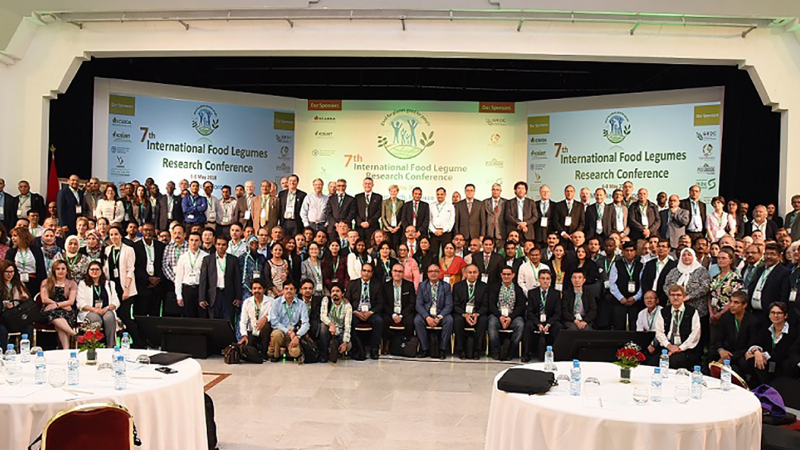Promoting the pro-poor benefits of legumes

Legumes are climate-smart plants that offer multiple benefits for people and the planet: supporting sustainable food production systems, strengthening food and nutritional security, and improving climate change mitigation/adaptation. As more are turned on to these benefits global demand is increasing exponentially.
However, demand is also out-pacing supply and the demand-supply gap is expected to increase with the effects of climate change. There is also significant intra-regional and inter-country variation: production is soaring in North America and Australia yet remains far below its potential in many developing countries, often leading to import dependence.
The 7th International Food Legumes Research Conference, currently being held in Marrakesh, Morocco, has brought together over 300 legume experts to explore scientific solutions that extend the benefits of these climate-smart plants to all.
Conference attendees heard impressive stories of advanced crop science being applied to develop high-yielding mungbean varieties, heat-tolerant bean varieties, and short-duration lentils that can be grown quickly on fallow land across South Asia.
Moving beyond yields alone
But, as Peter Carberry, Director of the CGIAR Research Program on Grain Legumes and Dryland Cereals (GLDC) argued, research needs to go beyond a simple focus on yield to also consider how it can eradicate poverty. One potential approach, suggested Pramosd Joshi of the International Food Policy Research Institute (IFPRI), was enhancing the efficiency of value chains so that farmers gain a better share of income.
Another was strengthening seed systems – ensuring that improved climate-resilient and higher-yielding legume varieties were disseminated more effectively and efficiently to farmers. Weak seed systems remain a significant bottleneck in many developing countries. Potential strategies to improve their performance include: incentivizing more engagement in formal seed supply; encouraging farmer participation; and popularization efforts such as demonstration trials and farmer field days.
In Africa the dissemination of new varieties is held back by limited awareness, restricted availability and low profitability, according to Koaudio Nasser Yao of the International Livestock Research Institute (ILRI). In response, he has promoted demand-led breeding strategies that adopt a highly localized approach – introducing new varieties that are adapted to local conditions and reflect customer needs.
Strengthening food and nutritional security
A focus on yields alone may also overlook the importance of increasing access to healthy and nutritious food. Ashutosh Sarker, ICARDA’s Regional Coordinator for South Asia and China, reminded the Conference that some 43 percent of pre-school children worldwide are anemic. Biofortification, he stressed, could ensure that legume varieties are packed with Iron and Zinc to address this form of malnutrition; although their wider dissemination depends on a thorough understanding of the sensory preferences of consumers – in terms of taste, texture and color.
See summary of key talks:
Day 2 Harnessing advanced crop science to raise legume productivity
Day 3 Towards an integrated approach to legume production
